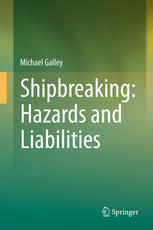

Most ebook files are in PDF format, so you can easily read them using various software such as Foxit Reader or directly on the Google Chrome browser.
Some ebook files are released by publishers in other formats such as .awz, .mobi, .epub, .fb2, etc. You may need to install specific software to read these formats on mobile/PC, such as Calibre.
Please read the tutorial at this link: https://ebookbell.com/faq
We offer FREE conversion to the popular formats you request; however, this may take some time. Therefore, right after payment, please email us, and we will try to provide the service as quickly as possible.
For some exceptional file formats or broken links (if any), please refrain from opening any disputes. Instead, email us first, and we will try to assist within a maximum of 6 hours.
EbookBell Team

4.3
68 reviewsMost of the world’s redundant ships are scrapped on the beaches of the Indian sub-continent, largely by hand. As well as cargo residues and wastes, ships contain high levels of hazardous materials that are released into the surrounding ecology when scrapped. The scrapping process is labour-intensive and largely manual; injuries and death are commonplace.
Ship breaking was a relatively obscure industry until the late 1990s. In just 12 years, action by environmental NGOs has led to the ratification of an international treaty targeting the extensive harm to human and environmental health arising from this heavy, polluting industry; it has also produced important case law.
Attempts to regulate the industry via the Basel Convention have resulted in a strong polarization of opinion as to its applicability and various international guidelines have also failed because of their voluntary nature. The adoption of the Hong Kong Convention in 2009 was a serious attempt to introduce international controls to this industry.